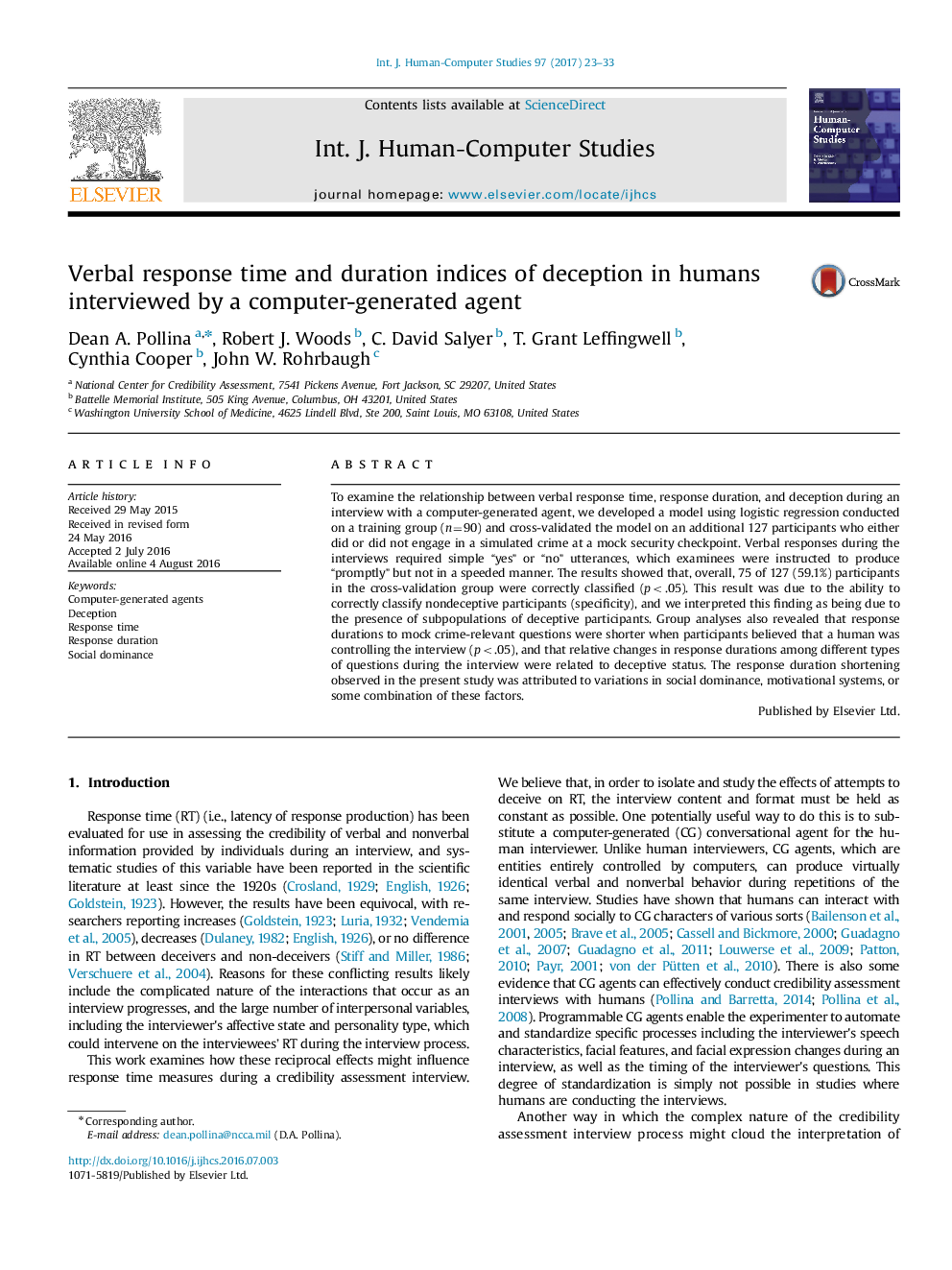ترجمه فارسی عنوان مقاله
شاخص زمان و شاخص زمان پاسخ کلامی فریب در انسان مصاحبه شده توسط یک عامل تولید شده توسط کامپیوتر
عنوان انگلیسی
Verbal response time and duration indices of deception in humans interviewed by a computer-generated agent
| کد مقاله | سال انتشار | تعداد صفحات مقاله انگلیسی |
|---|---|---|
| 161113 | 2017 | 11 صفحه PDF |
منبع

Publisher : Elsevier - Science Direct (الزویر - ساینس دایرکت)
Journal : International Journal of Human-Computer Studies, Volume 97, January 2017, Pages 23-33
ترجمه کلمات کلیدی
عوامل تولید کامپیوتری، فریب، زمان پاسخ، مدت زمان پاسخ، سلطه اجتماعی،
کلمات کلیدی انگلیسی
Computer-generated agents; Deception; Response time; Response duration; Social dominance;

